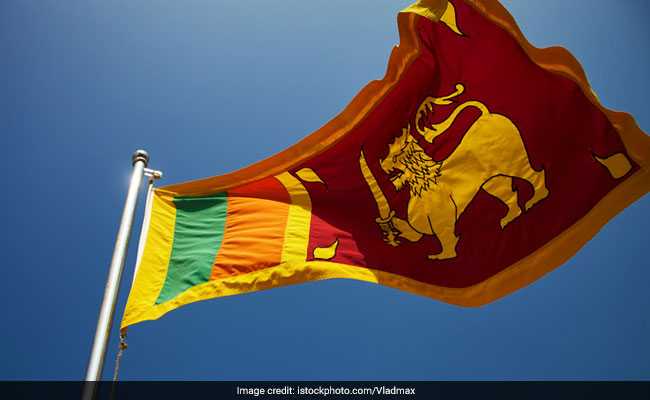Sri Lanka was defeated at three consecutive resolutions at the UN rights body when Gotabaya’s elder brother and incumbent Prime Minister Mahinda Rajapaksa was the country’s president between 2012 and 2014.

There are expectations among Sri Lanka officials that India would opt to abstain from voting.
Colombo:
Sri Lanka will face a critical resolution at the UN Human Rights Council in Geneva on Monday which is being seen as an acid test for President Gotabaya Rajapaksa, amidst allegations that his government’s initiatives had “repeatedly failed” to ensure justice for the victims and promote reconciliation after the end of the armed conflict with the LTTE in 2009.
Sri Lanka was defeated at three consecutive resolutions at the UN rights body when Gotabaya’s elder brother and incumbent Prime Minister Mahinda Rajapaksa was the country’s president between 2012 and 2014.
The government of Gotabaya Rajapaksa had officially withdrawn from co-sponsoring the previous resolution undertaken by the previous government. It had called for an international investigation into alleged war crimes committed by both the government troops and the Liberation Tigers of Tamil Eelam (LTTE) during the final phase of the near-three-decade-long civil war that ended in May 2009.
Officials said that the draft resolution titled ‘Promotion of Reconciliation Accountability and Human Rights in Sri Lanka’ has been listed as the agenda item 2 at Monday’s sessions.
Foreign Minister Dinesh Gunawardena said that the whole resolution was politically motivated particularly by the UK. “Sri Lanka has made progress with preserving human rights with our own program of work hence the international community must assist us,” he said.
“Over the years, various allegations have been levelled against our country, alleging human rights abuses. We have been cautious about this. After our government was elected, a Presidential Commission has been appointed to investigate human rights allegations,” he said.
He also said that funds have been allocated from the budget to activate the Office on Missing Persons.
“While the present government was taking a number of such positive steps, it was not fair to ignore it and accuse us repeatedly in various manners at the Human Rights Council in Geneva,” he added.
“We are trying to defeat the false accusations levelled against us, and many friendly countries have joined hands with us in this. We hope that India too, will support us this time,” Gunawardena said.
The point number 9 in the draft resolution calls upon “the (Sri Lankan) government to ensure prompt thorough and impartial investigation, if warranted, prosecution of all alleged crimes relating to human rights violations and serious violations of international human rights law”.
Michelle Bachelet, High Commissioner for Human Rights, in her report on Sri Lanka last month indicated that nearly 12 years after the end of the armed conflict, “domestic initiatives had repeatedly failed to ensure justice for victims and promote reconciliation. Despite commitments made in 2015, the current Government, like its predecessor, had failed to pursue genuine accountability processes.”
Meanwhile, Sri Lanka has been assured of support from China, Russia and several Muslim countries including Pakistan, officials said.
The Indian position on elections to Sri Lanka’s north and eastern provincial councils has been reflected in the draft resolution; “to ensure that all provincial councils including the northern and eastern provincial councils are able to operate effectively in accordance with the thirteenth amendment to the constitution of Sri Lanka”.
There are expectations among the officials in Colombo that India would opt to abstain from voting.
On March 13, Prime Minister Narendra Modi and Sri Lankan President Gotabaya Rajapaksa had a telephonic conversation during which they reviewed topical developments as well as ongoing cooperation between both the countries in bilateral and multilateral forums.
In a statement on the UN rights Commissioner Michelle Bachelet’s report on Sri Lanka during the 46th session of the UNHRC last month, India said the assessment of the High Commissioner regarding developments nearly 12 years from the end of the conflict raises important concerns.
“The Sri Lankan government has articulated its position on these issues as well, in evaluation of these, we should be guided by a commitment to find a lasting and effective solution to this issue,” the statement said.
Articulating New Delhi’s stand, Ambassador Indra Mani Pandey, Permanent Representative of India in Geneva, had said it rests on two pillars: Support for Sri Lanka’s unity and territorial integrity, and abiding commitment to aspirations of the Tamils of Sri Lanka for equality, justice, peace and dignity.
“These are not either-or choices. We believe that respecting the rights of the Tamil community, including through meaningful devolution, contributes directly to the unity and integrity of Sri Lanka.”
“Therefore, we advocate that delivering on the legitimate aspirations of the Tamil community is in the best interests of Sri Lanka,” he said.
“We call upon Sri Lanka to take necessary steps for addressing such aspirations, including through the process of reconciliation and full implementation of the 13th Amendment to the Constitution of Sri Lanka,” the statement delivered by Mr Pandey had said.
(This story has not been edited by our staff and is auto-generated from a syndicated feed.)
